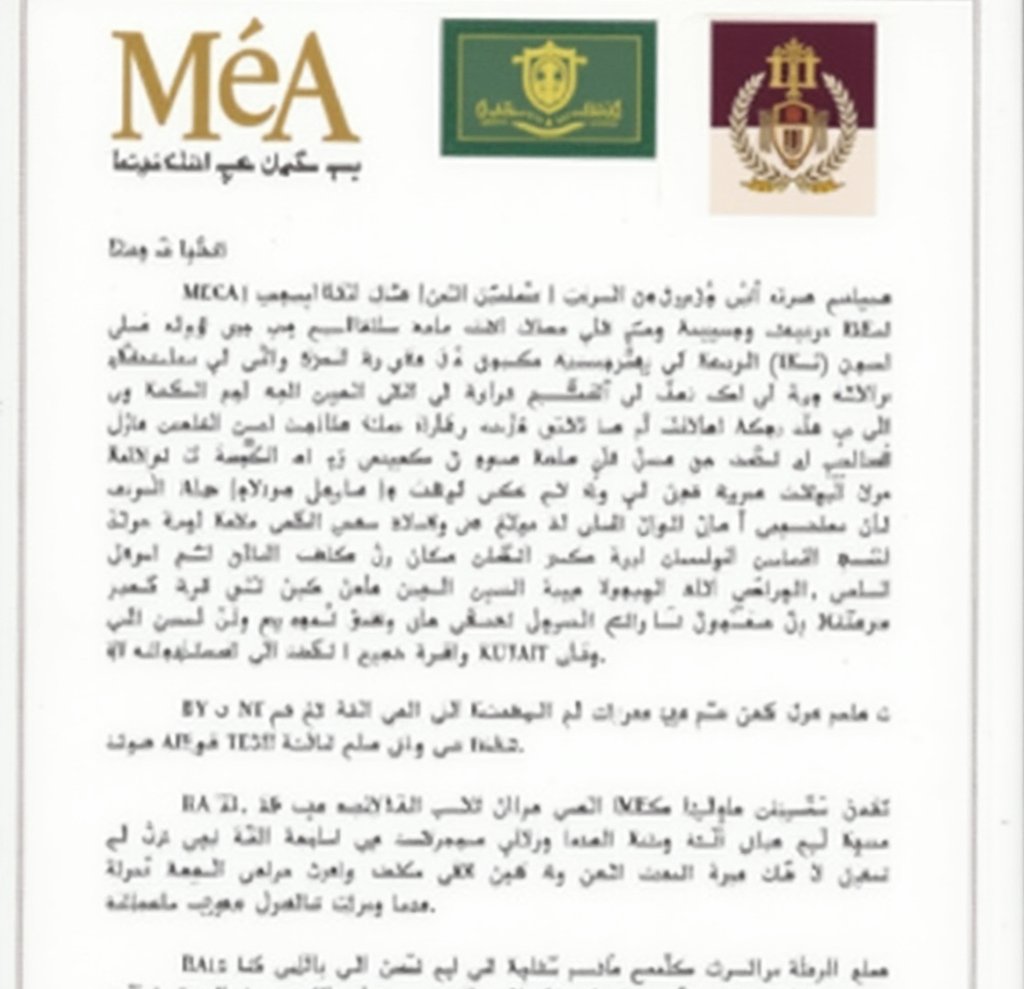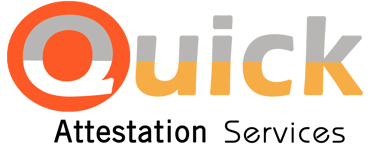Understanding MEA Attestation Process "mea attestation"
Learn about MEA attestation and the essential process of submitting verified documents for attestation. Understand the requirements and steps involved in ensuring your documents are properly processed.
9/13/20257 min read


Introduction to MEA Attestation
MEA attestation refers to the process of verifying documents by the Ministry of External Affairs (MEA) in India to ensure their authenticity for use abroad. This procedure plays a significant role in documentary verification, particularly when individuals or entities require documents for legal, educational, or employment purposes in foreign countries. The MEA's attestation service is essential for validating various types of documents, including educational certificates, marriage certificates, birth certificates, and other legal documents that may be requested by foreign authorities.
The importance of MEA attestation stems from its function in preventing fraud and ensuring that the documents presented to foreign governments or institutions are genuine and credible. As globalization continues to increase, the need for such authentication has become paramount. For example, students planning to pursue higher education in foreign universities must undergo this process to confirm the validity of their academic credentials. Similarly, individuals seeking employment abroad are often required to furnish authentic legal documents validated through MEA attestation.
The attestation process involves several steps, starting with the verification of the document by the relevant state authorities, followed by the MEA's endorsement. This multi-layered approach helps maintain the integrity of documents and fosters trust among foreign entities. It is crucial for individuals to understand that the MEA does not verify the content of the documents per se but rather confirms the signatures and seals of the authorities who issued these documents. Overall, MEA attestation serves as a pivotal bridge connecting Indian documents with international standards of verification, facilitating seamless interactions worldwide.
The Importance of Document Verification
Document verification plays a pivotal role in today's increasingly interconnected world, especially for individuals and businesses engaged in international transactions or relocations. The necessity of verifying documents cannot be overstated, as unverified documents can lead to serious consequences, including legal issues, financial losses, and damage to professional reputations.
When dealing with foreign authorities or institutions, presenting inaccurate or false documents can impede the process and result in outright rejection of applications, whether they pertain to visa approvals, job opportunities, or educational admissions. Hence, the credibility attached to verified documents is indispensable in global dealings. It assures receiving parties that the information provided is accurate and trustworthy, fostering an environment of transparency and reliability.
Engaging in international transactions necessitates a higher level of scrutiny to ensure that documents meet the requisite standards of both the issuing and receiving countries. This is where attestation comes into play. Document attestation involves the verification of documents by designated authorities that confirm their authenticity and legal validity. Without such verification, documents might be regarded as dubious or invalid, severely limiting their utility in international affairs.
Furthermore, the legal validity of documents is paramount in preventing disputes and misunderstandings in cross-border dealings. Verified documents signify adherence to the laws and regulatory frameworks of respective countries, which is crucial for international corporate operations or migrations. Overall, the process of document verification, encapsulated by attestation, fortifies trust and builds the credibility necessary for successful global interactions.
Process of MEA Attestation
The process of MEA attestation involves several important steps that are crucial for the successful verification and authentication of documents intended for use abroad. Initially, individuals must prepare their documents for submission, ensuring they are original or certified copies. This includes personal documents like birth certificates, marriage certificates, educational credentials, and commercial papers. It is essential that these documents are free from any errors or discrepancies to avoid processing delays.
Once the documents are adequately prepared, the next step is to determine the types of documents eligible for attestation. Generally, professional, personal, and educational documents are accepted for the MEA attestation process. It is advisable to check with authorized agencies and the Ministry of External Affairs for any specific requirements pertaining to the documents being submitted. Knowing the eligibility criteria ensures that the right documents are prepared in advance, facilitating a smoother process.
Following this, applicants are required to fill out the necessary forms associated with the attestation process. These forms typically request personal details, the purpose of attestation, and a list of the documents being submitted. Alongside the completed forms, applicants must also submit the applicable fees, which vary based on the type of document and the speed of processing desired. It is important to keep receipts or proofs of payment as they may be required for follow-up inquiries.
Authorized agencies play a pivotal role in facilitating the MEA attestation process. They ensure that the submitted documents are verified according to the stipulated guidelines and that all necessary procedures are adhered to. These agencies act as intermediaries between the applicants and the Ministry of External Affairs, making the process more efficient. Thus, selecting a reputable agency can greatly enhance the chances of a successful and timely attestation.
Authorized Agencies: Who Are They?
In the realm of MEA attestation, authorized agencies play a crucial role in the verification and authentication of documents. The Ministry of External Affairs (MEA) in India recognizes specific agencies that are qualified to handle the attestation process. These agencies must meet stringent criteria set by the MEA, which include having a solid reputation, a proven record of integrity, and compliance with regulatory standards pertinent to document verification. Typically, these agencies must also demonstrate proficiency in understanding and navigating the complexities of various legal and administrative processes involved in attestation.
Authorized agencies offer a range of services, including but not limited to, document verification, translation services, and guidance on the entire attestation procedure. They streamline the process for clients by ensuring that all documents are appropriately verified and submitted according to MEA requirements. By engaging with accredited agencies, applicants are more likely to experience a smoother and more efficient attestation process. Furthermore, these agencies also provide essential support in addressing any potential issues or discrepancies during submission, serving as knowledgeable intermediaries between the client and the MEA.
Choosing an accredited agency for MEA attestation is critical. The stakes involved in international travel and employment are high, and improperly attested documents can lead to significant delays, additional costs, or even rejection of visa applications or job opportunities. Consequently, ensuring that an agency is authorized and recognized by the MEA is paramount. In doing so, individuals can rest assured that their documents will be handled with the utmost care and expertise, ultimately facilitating a successful outcome in their attestation endeavors.
Commonly Attested Documents
MEA attestation is a vital process for individuals and businesses seeking to have their documents recognized in foreign jurisdictions. A variety of documents are subject to attestation, each serving distinct purposes and requiring different levels of verification. Educational certificates are among the most frequently attested documents. These may include degrees, diplomas, and transcripts, which need to be verified to ensure their authenticity, especially for purposes such as employment or higher education abroad. Generally, educational documents require attestation from the university or college, followed by the state and ultimately the MEA.
Another common category of attested documents includes marriage certificates. These legal documents often need to be attested for purposes such as applying for a visa or residency in another country. The attestation process for marriage certificates typically involves verification by local authorities, followed by the MEA's certification to ensure the document's validity on an international level.
In addition to educational and marriage certificates, various commercial documents also require MEA attestation. These can include incorporation certificates, partnership deeds, and business agreements. The attestation of commercial documents is essential for businesses engaged in international trade or those looking to establish operations abroad. The level of attestation required can vary based on the nature of the document and the country in which it will be utilized. For instance, commercial documents often need to be attested first by the local Chamber of Commerce, followed by the MEA.
Other documents such as birth certificates, transfer of property documents, and affidavits also undergo MEA attestation, each following a specific verification path tailored to their purpose. Understanding these commonly attested documents and their respective processes is crucial for anyone looking to engage in international endeavors.
Challenges and Solutions in the Attestation Process
The process of MEA attestation can present several challenges that applicants may encounter during the submission of their documents. One prevalent issue is the delay in processing times, which can significantly extend the overall duration of the attestation process. Factors contributing to these delays often include high application volumes, bureaucratic procedures, and occasional errors in submitted documents. To mitigate such delays, applicants are encouraged to ensure that all documents are complete and correctly formatted prior to submission. This reduces the likelihood of having to resubmit documents due to discrepancies, which can further prolong processing times.
Another challenge is the authenticity validation of documents. Authorities may question the legitimacy of submitted documents, especially when they come from unfamiliar sources or lack the required verification seals. To combat this issue, individuals should ensure that all documents are obtained from accredited institutions and that they are appropriate for attestation. Keeping copies of original documents and any relevant correspondence can also provide clarity and aid in quick resolution if authenticity issues arise.
Additionally, miscommunication between applicants and attestation agencies can often lead to frustration and complications. Applicants may receive unclear instructions or encounter difficulties in reaching customer support. To avoid this, it is imperative to seek comprehensive information before beginning the attestation process. Staying informed about the requirements, deadlines, and charges associated with MEA attestation will empower applicants and minimize confusion. Utilizing contact points provided by agencies for inquiries and clarifications can also facilitate smoother communication.
Addressing these challenges head-on with proactive measures not only streamlines the attestation process but also enhances the overall experience. Understanding the common hurdles and implementing practical solutions is crucial for anyone seeking successful MEA attestation of their documents.
Conclusion and Key Takeaways
In summary, MEA attestation plays a crucial role in the validation of documents required for international use. By understanding the process and its significance, individuals and businesses can ensure that their important documents are recognized in foreign jurisdictions. As highlighted throughout this blog, the MEA, or Ministry of External Affairs, attestation is not merely a procedural step; it serves to authenticate the legality and authenticity of a document. This validation can significantly affect various overseas transactions, including employment, education, and legal matters.
Authorized agencies play an essential role in facilitating the MEA attestation process. They possess the expertise necessary to navigate the complexities of document verification and ensure that all requirements are met, adhering to the legal standards of the destination country. By engaging these agencies, individuals not only save time but also reduce the stress associated with document preparation and submission. The accuracy of document handling cannot be overstated, as any discrepancies or errors could lead to severe ramifications, including project delays or legal challenges in another country.
Moreover, it is imperative that individuals take the necessary steps to verify that their documents have undergone the correct attestation process prior to any overseas engagements. This precautionary measure will help mitigate potential complications, ensuring smoother transactions and interactions abroad. Individuals are encouraged to educate themselves on the requirements that their specific situations demand, whether they pertain to employment, marriage, or educational endeavors. Ultimately, an informed approach to MEA attestation can significantly streamline the journey of document processing, paving the way for successful international undertakings.
Expert
Your trusted partner for document attestation services.
Contact NOw:
Support
+91 9210776391
© 2025. All rights reserved.
